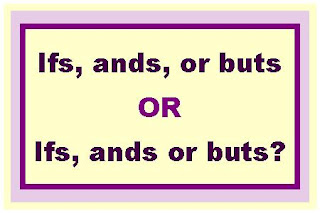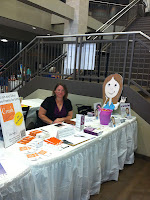 |
| Created with Doodle Buddy for iPad |
After managing to avoid most of them and while sitting waiting for the meeting to start, something amazing occurred to me. I was more among true friends who cared about me as a person in my Toastmasters meeting with people I'd seen not even weekly since May than I ever was sitting next door having lunch with people I'd worked with for years. My fellow Toastmasters care more about me, my personal development, and my personal improvement - and do it in a more caring way - than anyone (except perhaps well less than a handful) ever did there.
In all fairness, they or it, my former employer as a whole, are not entirely to blame. I also realized while waiting for the meeting that I never really gave them a reason to care about me as a person, because I didn't really care about them either. I was there to do a job and, back then, I didn't see the advantage of personal relationships. Except for a couple of people who were brave enough and wonderful enough to talk to me first, I never really talked to anyone about myself or themselves. I got to work, hit the ground running, did my job, and I went home. Knowing then what I know now, I still don't think I would participate in chit-chat when there is work to be done, but I think maybe I'd make more of an effort to get to really know more people.
Another thing I've suspected but was firmly cemented in my beliefs while waiting was that my former employer actually did me a favor by doing what they did (or didn't) do. If they'd have done what they said they would do, I would still be stuck back in that life. In a way, they forced me to leap into doing what I've always known deep down in my heart was what I wanted to do, but was too afraid to try to do it: to build a life writing and helping people say what they want to say. Without that push, I would not be who or where I am today. I would still be a robot, not fully realizing and being too timid to follow my passion of writing. So I thank them.
As I think forward to 2013, I can see the clear path my life has followed up to this point. And it feels right; it feels it is as it should be. And I will keep on the path - becoming even more of the real person I am; forming real relationships that will last beyond circumstances; and being at peace with what I'm doing with my life, hopeful, and engaged.
Happy New Year!
From The Wordsy Woman


















